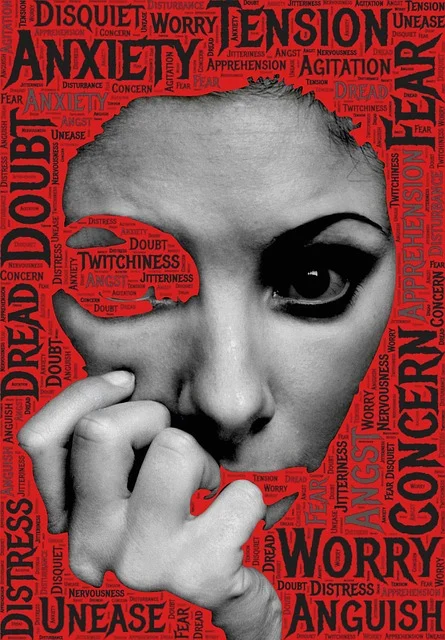Introduction
The teenage years are often described as some of the most exciting yet challenging years of life. It’s a time filled with self-discovery, identity exploration, and new responsibilities. But it’s also a period when many young people face intense pressure—from school, peers, family expectations, and even the constant presence of social media. With these changes, mental health becomes a central concern.

In recent years, studies have shown a dramatic rise in mental health struggles among teens. Anxiety, depression, and loneliness are being reported at record levels, and many parents, teachers, and caregivers find themselves asking: How do we help teenagers cope with these challenges?
This article explores teen mental health in depth—covering the most common issues, understanding crises, explaining mental health to teenagers in clear terms, identifying the biggest problems teens face today, and offering strategies for support. By the end, you’ll have a comprehensive guide to navigating one of the most important conversations of our time.
What are the mental health issues of teenagers?
Teenagers can experience many of the same mental health issues as adults, but often these conditions show up differently in adolescence. Some of the most common include:
- Anxiety disorders – Persistent worry, panic attacks, or fear of social situations.
- Depression – Feelings of sadness, hopelessness, or disinterest in activities once enjoyed.
- Eating disorders – Issues like anorexia, bulimia, or binge-eating that are tied to self-image.
- ADHD (Attention-Deficit/Hyperactivity Disorder) – Difficulty focusing, impulsivity, restlessness.
- Social anxiety – Extreme fear of being judged or embarrassed by peers.
- Substance abuse – Using drugs or alcohol to cope with stress or emotional pain.
Warning signs may include: withdrawal from friends, drastic changes in behavior, irritability, poor grades, lack of energy, or loss of interest in hobbies.
Understanding these issues early can prevent them from worsening and give teens the support they need.
What is a teenage crisis?
A teenage crisis happens when young people feel overwhelmed by challenges they cannot manage on their own. Crises can be short-lived—like dealing with a breakup or failing a test—or long-term, such as ongoing bullying or family conflict.
Common examples include:
- Struggling with identity or self-worth.
- Peer pressure to engage in risky behaviors.
- Social media comparisons that harm self-esteem.
- Sudden life changes such as divorce, moving, or loss of a loved one.
During a crisis, a teenager may act out, shut down, or become unusually anxious. Recognizing these moments is crucial because a crisis doesn’t just affect mood—it can escalate into serious mental health issues if ignored.
How to explain mental health to a teenager
Explaining mental health to a teenager requires patience, openness, and respect. Teens often fear being judged, so the approach must be non-judgmental.

Tips for explaining mental health:
- Use simple, relatable language. Instead of medical jargon, talk about mental health as “how our mind feels, just like physical health is how our body feels.”
- Normalize emotions. Explain that everyone feels stress, sadness, or anxiety sometimes, and it’s okay to talk about it.
- Give examples. Use analogies, like comparing therapy to “coaching for the mind.”
- Break stigma. Reassure teens that seeking help doesn’t mean something is “wrong” with them—it’s about learning skills to cope better.
- Encourage open conversations. Let them know it’s safe to share feelings without fear of punishment or dismissal.
The key is to listen more than you talk. Teens often just want to be heard.
What is the biggest problem teens face today?
While every generation faces unique struggles, today’s teenagers are navigating challenges never seen before. Some of the biggest include:
- Social Media & Technology
- Constant comparison to peers.
- Pressure to maintain an online image.
- Cyberbullying and unrealistic beauty standards.
- Academic Pressure
- Stress of grades, college admissions, and career choices.
- Fear of failure and disappointing parents.
- Bullying & Peer Pressure
- Traditional bullying plus online harassment.
- Pressure to fit in, experiment with substances, or engage in risky behaviors.
- Loneliness & Isolation
- Despite being “connected” online, many teens report feeling isolated.
- Decline in real-life friendships and support networks.
- Mental Health Stigma
- Many teens still feel shame in talking about their struggles.
- Fear of being labeled or misunderstood.
These issues combined make today’s teens more vulnerable to anxiety, depression, and burnout than ever before.
Causes & Risk Factors for Teen Mental Health Struggles
Teen mental health challenges don’t arise from a single cause. Instead, they are influenced by multiple factors:
- Biological: Hormonal changes during puberty, brain development.
- Psychological: Low self-esteem, perfectionism, coping skills.
- Environmental: Family conflict, poverty, academic stress.
- Cultural: Pressure to meet societal expectations, stigma around therapy.
Understanding these risk factors helps caregivers and educators build protective environments for teenagers.
Warning Signs Parents & Teachers Should Watch
Sometimes, it’s not easy to tell if a teen is struggling. Watch for:
- Persistent sadness or irritability.
- Changes in eating or sleeping habits.
- Withdrawal from friends or family.
- Decline in school performance.
- Risky or self-destructive behavior.
- Talking about hopelessness or self-harm.
The earlier these signs are recognized, the faster help can be provided.
How Parents and Guardians Can Support Teens
Parents play one of the biggest roles in shaping teen mental health. Here’s how to help:
- Listen without judgment. Give them space to express emotions.
- Create a safe home environment. Teens should feel loved and supported even when they make mistakes.
- Encourage balance. Promote healthy routines—exercise, good sleep, time outdoors.
- Model healthy behavior. Show your own ways of coping with stress.
- Offer resources. Therapy, school counselors, and hotlines can be life-changing.
Coping Strategies for Teens
Teens themselves can build resilience with small daily habits:
- Practice mindfulness and deep breathing.
- Keep a journal to process thoughts.
- Stay active—exercise boosts mood and focus.
- Eat nutritious meals and stay hydrated.
- Limit social media when feeling overwhelmed.
- Build strong connections with friends and mentors.
These coping skills create lifelong mental health benefits.
Role of Schools & Communities
Schools and communities have a major role in teen mental health:
- Offering counselors and peer support groups.
- Running anti-bullying campaigns.
- Providing safe, inclusive spaces for all students.
- Encouraging mental health education as part of the curriculum.
When schools and communities work together, teens are less likely to feel alone in their struggles.
When & How to Seek Professional Help
Sometimes, professional support is essential. Seek help if:
- Symptoms persist beyond two weeks.
- Teens show signs of self-harm or suicidal thoughts.
- Daily functioning—school, friendships, hobbies—is severely disrupted.
Options include:
- Therapists or psychologists.
- School counselors.
- Online therapy platforms.
- Hotlines for crisis support.
Seeking help should be normalized, not feared.
Future Outlook: Supporting the Next Generation
The future of teen mental health depends on how society responds today. We need to:
- Encourage open conversations at home, school, and in media.
- Invest in mental health programs for youth.
- Use technology (apps, online therapy) responsibly to expand access.
- Teach resilience, empathy, and emotional intelligence early.
By creating supportive environments, we can help today’s teenagers grow into confident, mentally strong adults.
Conclusion
Teen mental health is one of the defining challenges of our time. While teenagers today face unique pressures—from social media to academic demands—they also have access to greater awareness, resources, and support systems than ever before.
The key is recognizing struggles early, encouraging open conversations, and creating safe spaces at home, school, and in communities. Mental health is just as important as physical health, and with empathy and guidance, we can ensure that every teenager has the opportunity to thrive.



